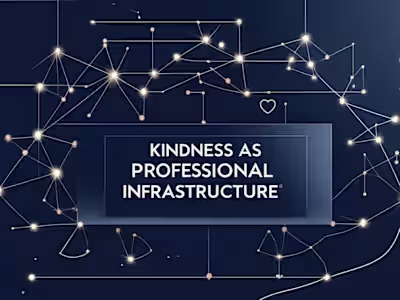Beyond the Echo Chamber
Beyond the Echo Chamber: The Challenge of Truly Global Journalism
In an era of deepening polarisation, the question haunting journalism remains: how can we report on complex global realities without falling prey to our own cultural and ideological biases?
Western coverage of India's political landscape offers a compelling case study. Major publications routinely frame India's current government through established Western ideological templates – authoritarian versus democratic, secular versus religious – categories that fundamentally oversimplify and flatten the complex socio-political realities of the world's most populous democracy.
This isn't to suggest that legitimate criticism should be silenced. Rather, it raises questions about which critiques receive amplification and which perspectives are systematically excluded from the conversation. When India implements policies that parallel those in Western democracies, why does the framing often differ so dramatically? And whose voices are centered in these narratives?
The challenge extends beyond India. Similar patterns emerge in Western coverage of Latin American politics, African governance, and Middle Eastern conflicts. The implicit assumption that Western liberal frameworks represent the universal endpoint of politics shapes coverage in profound ways.
As an engaged citizen with roots in both worlds, I've observed how this creates a double disconnect: Western readers receive an incomplete picture of global realities, while audiences in the countries being reported on perceive Western journalism as detached from their lived experiences and realities.
This poses a critical crisis for journalism's foundational promise: to provide citizens with accurate, unbiased information that illuminates the intricate global landscape. When reporting filters diverse realities through a singular ideological lens, it betrays this promise.
The path forward isn't abandoning critical journalism but expanding its scope. One that demands radical reimagination to include:
Cultivating journalistic teams with genuine cultural fluency of the geographies covered;
Actively seeking perspectives that challenge editorial orthodoxies and embrace heterodoxies;
Acknowledge that political, social and cultural realities resist neat categorisation;
Transparently examine how funding structures, editorial hierarchies, and audience expectations shape content. Which stories receive resources? Which perspectives are deemed credible? Which assumptions remain unquestioned?
True journalistic independence comes from challenging not just power structures we oppose but also ideological frameworks we inhabit and to honestly examine if either or both come in the way of our journalistic integrity. Only by embracing nuanced, multi-perspective reporting, and cultivating the (critical but often overlooked) epistemic humility to acknowledge “we do not know everything,” can Western journalism rebuild its capacity and fulfill its essential role of building bridges of understanding across our fractured global landscape.
~ Priya Krishnamoorthy
(A 400-word comment piece for the Guardian).
Like this project
Posted Aug 4, 2025
Exploring biases in global journalism and advocating for nuanced reporting. Submitted to the UK newspaper, The Guardian, as a Comment Piece.





